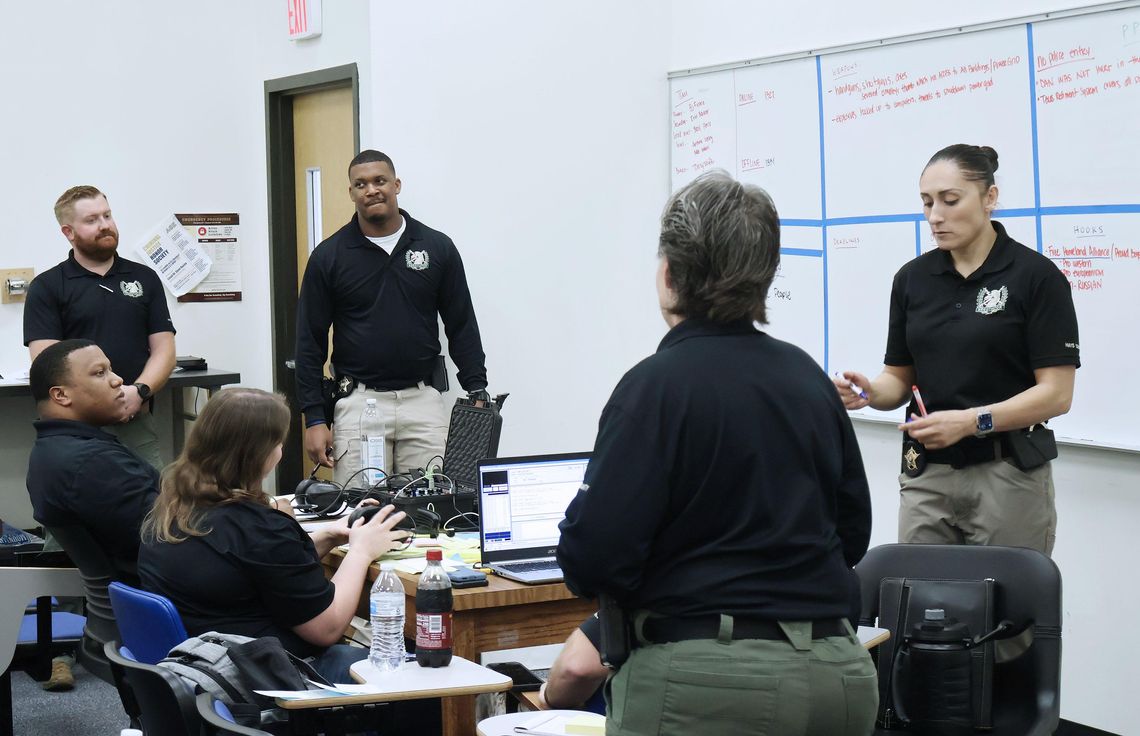Each year, Texas State University hosts a competition where police officers become students and students become criminals.
Mock hostage negotiations kicked off on Tuesday for the 33rd Annual Competition and Seminar on Crisis Negotiations, attended by law enforcement officers and judges from across the globe.
Twenty-nine teams signed up for this year’s competition, according to Wayman Mullins, Distinguished Professor Emeritus of Criminal Justice.
Mullins said when he introduced the competition in 1990, there were just two teams — one from Austin and one from San Antonio.
“We invited another team in to evaluate, and when it was over, that team said, ‘That was cool. Can we do that next year?’” he said. “And we’ve just kind of grown from there.”
Mullins described how the competition works: All teams are given the same scenario, and their performance is evaluated by a team of experts.
“It is a competition, so at the end of the day there is a numerical score,” Mullins said. “But the important part of it is the judges we bring in write pretty extensive comments. [The officers] get to take those home and use them as training.”
Mullins said teams are evaluated by a standardized form that examines a team’s negotiation skills, listening skills and teamwork.

Hostage takers are played by Criminal Justice students, who receive coaching from Howard E. Williams, Ph.D., former San Marcos Police Department chief and lecturer at the School of Criminal Justice and Criminology.
For this year’s scenario, Williams trained the students to be obstinate, antisocial, and to not to give up their hostages.
Williams said the students “do a fantastic job.”
“It takes them a while, but once they get into character, it’s amazing how talented they can be in portraying all these emotions that we want [them] to portray,” he said.
Nicole Collins, a third-year Criminal Justice student, said she decided to volunteer as a hostage taker “because I wanted to experience firsthand actual teams [and] how they deal with these interrogations.”
Collins described the law enforcement teams as “very professional” and “very serious.”
“If I were an actual hostage taker and I was speaking to these guys, there's no way I’d be able to stand for more than a couple hours by myself or with anyone,” she said. “Just talking to them, I feel like I would just straight up surrender.”
Williams said not every scenario will be peacefully negotiated, “no matter how good the negotiators get, but the idea is to get them better, and better, and better at what they do so we can increase our odds of getting people out of these things peacefully.
“Because that, after all, is the bottom line. That’s the big thing, is to teach them skills, to make them work those skills so that they don’t make mistakes in the real world. If you’re going to make a mistake, make them here.”
The 33th Annual Competition and Seminar on Crisis Negotiations is held from Jan. 10-12 inside the Hines Academic Center. The event concludes with a negotiating seminar on Thursday, Jan. 13.








